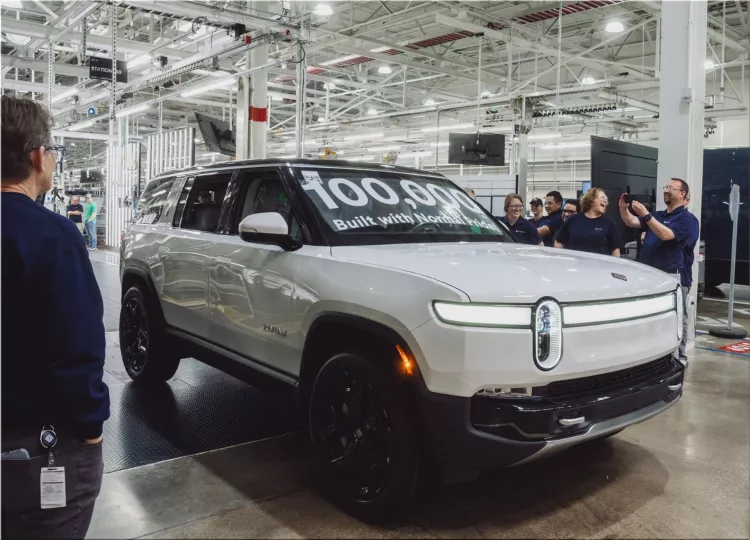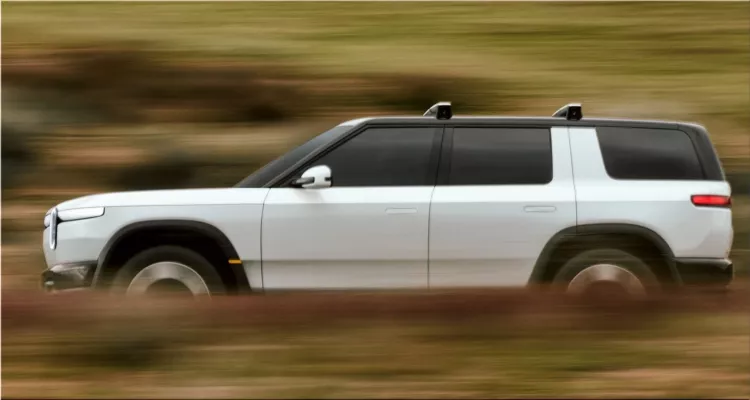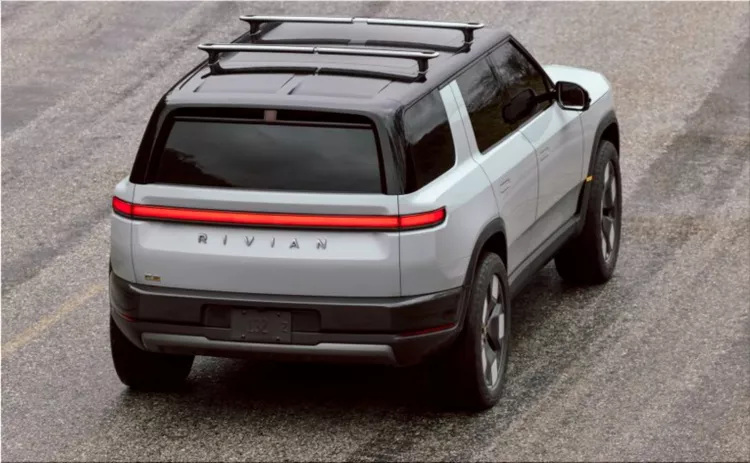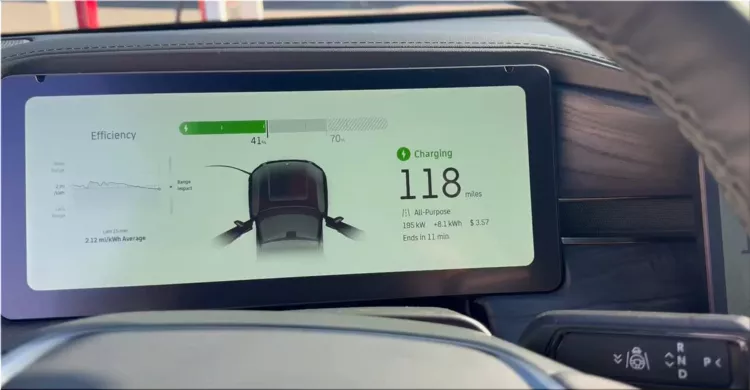Rivian, the electric vehicle (EV) startup that has captured the imagination of drivers and investors alike is continuing its meteoric rise. The company recently announced that it has exceeded production expectations for Q1 2024, a significant achievement that underscores its rapid growth. This news comes on the heels of another positive development: the launch of the North American Charging Standard (NACS) adapters for Rivian vehicles. This collaboration with Tesla has been met with widespread customer praise, further solidifying Rivian's commitment to driver experience and industry collaboration.
But perhaps the most telling indicator of Rivian's success is the explosive demand for its upcoming vehicles. The company recently unveiled its R2 electric SUV, and reservations quickly surpassed all expectations. In a remarkable feat, Rivian secured over 68,000 reservations for the R2 in less than 24 hours. This dwarfs the 114,000 pre-orders collected over four years for the Rivian R1T and R1S trucks, a clear sign that the R2 has struck a chord with consumers.
Let's delve deeper into these developments and explore what they mean for Rivian's future.
Exceeding Production Expectations: A Sign of Rivian's Manufacturing Prowess
Rivian's ability to exceed production targets in Q1 2024 is a testament to its manufacturing capabilities. Establishing a robust and efficient production line is a major hurdle for any new automaker, especially in the complex and rapidly evolving EV space. Rivian's success in this area suggests that it has a strong foundation to scale up production and meet the growing demand for its vehicles.
This achievement is particularly noteworthy considering the ongoing challenges the automotive industry faces. Supply chain disruptions and chip shortages have plagued traditional and EV manufacturers alike. Rivian's ability to navigate these obstacles and deliver on its production goals is a positive sign for its future.
NACS Adapters: A Commitment to Driver Convenience and Industry Collaboration
The launch of the NACS adapters is another strategic move by Rivian. These adapters allow Rivian owners to conveniently charge their vehicles at Tesla Supercharger stations, a vast and well-established network. This collaboration between two major EV players is a win-win for both companies and, more importantly, for EV drivers.
Rivian's willingness to embrace industry standards like NACS demonstrates its commitment to driver convenience and infrastructure development. By providing seamless access to a wider charging network, Rivian addresses a major concern for potential EV buyers: range anxiety. This move is likely to be well-received by consumers and further enhance the appeal of Rivian vehicles.
The R2 Reservation Frenzy: A New Benchmark for EV Demand
The overwhelming demand for the Rivian R2 clearly indicates the excitement surrounding the vehicle. With over 68,000 reservations secured in less than 24 hours, the R2 has set a new benchmark for EV reservation numbers. This surpasses the combined pre-order figures for the R1T and R1S trucks, highlighting the significant interest in Rivian's more affordable and accessible SUV offering.
The R2's starting price of $45,000 positions it competitively within the electric SUV segment. With an anticipated range of over 300 miles, the R2 offers a compelling combination of affordability, practicality, and performance. This combination will likely resonate with a broader range of consumers looking for a versatile and capable EV.
The Rivian R2 is expected to compete directly with established players like the Tesla Model Y, the Ford Mustang Mach-E, and the Hyundai Ioniq 5. Rivian's early reservation numbers suggest that the R2 has the potential to be a major player in this growing market segment.
Conclusion: Rivian's Future Looks Bright
Rivian's recent achievements – exceeding production targets, launching NACS adapters, and generating explosive demand for the R2 – paint a bright picture for the company's future. These developments showcase Rivian's manufacturing prowess, commitment to driver experience, and strategic product development.
As Rivian scales up production and prepares to deliver its vehicles to a wider audience, it will become a major force in the EV landscape. The company's focus on innovation, collaboration, and driver satisfaction will likely propel it forward in the coming years.
Audi sets its sights on China, its biggest market, by introducing the Q6L e-tron, a bespoke electric SUV designed specifically for Chinese customers. Unveiled at the 2024 Auto China in Beijing, the Q6L e-tron… Continue reading
Polestar unveiled its highly anticipated Polestar 4 at the 2024 New York International Auto Show. This sleek electric SUV coupe blends bold design with impressive performance, carving a unique niche in the… Continue reading
As confirmed by the CEO of the company, the BMW iX3 will begin to be manufactured next summer. It will be made in China, where it will start selling first, and is scheduled to hit Europe in 2021. At a recent shareholders meeting, BMW… Continue reading
Announced almost a year ago and after an intense teasing campaign, Audi has officially launched the Q4 e-tron and Q4 e-tron Sportback electric SUVs. The drive portfolio for the Audi Q4 e-tron and Audi Q4 e-tron Sportback includes two… Continue reading












